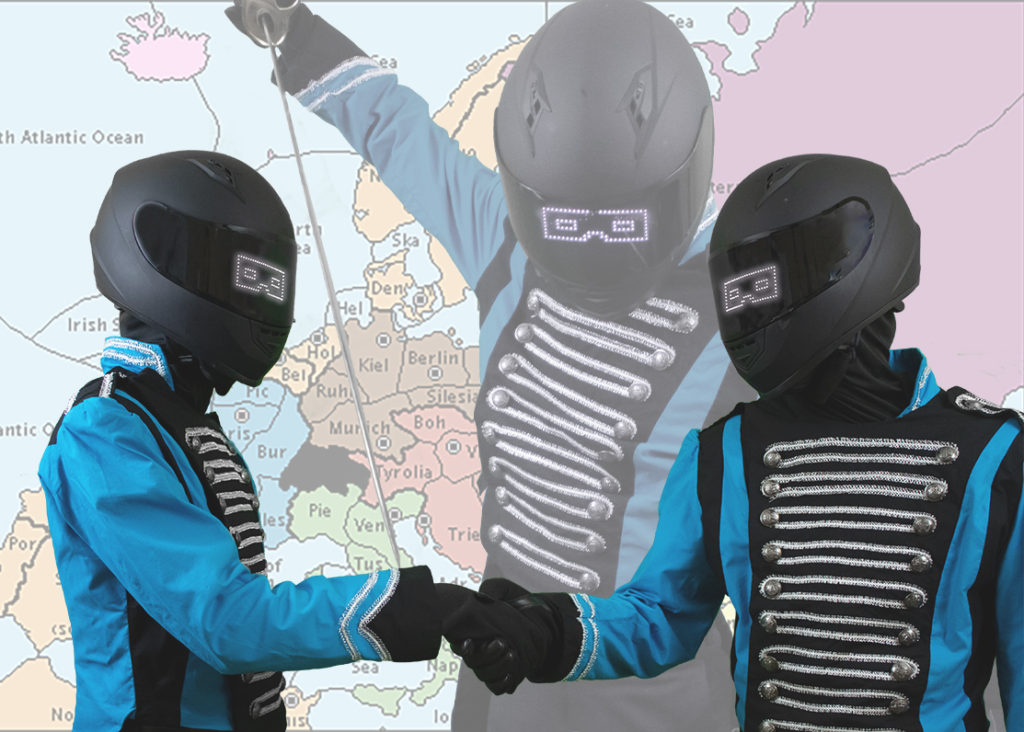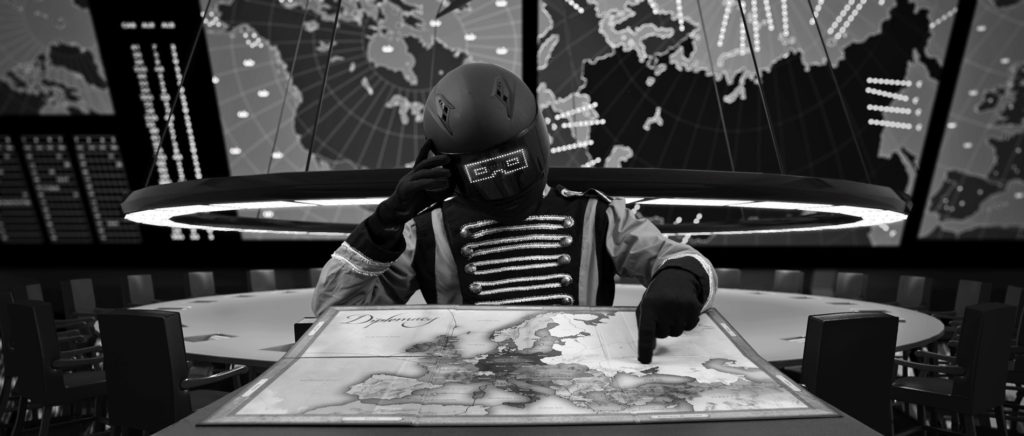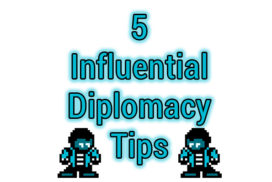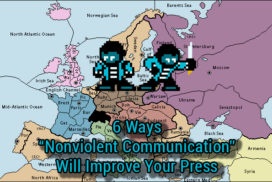On the BrotherBored Patreon, fans submit ideas for articles and help me choose which topic I’ll write about next!
The most recent winning topic was:
My impression is that many top players are very good at [sowing chaos on the opposite side of the board], but I have no idea how to approach it without appearing to be nosy. It seems that early in the game, very few players on the other side tell you too much about their real intentions.
Patreon Patron
This is a fascinating topic suggestion, and I’m excited to offer my thoughts on it!

Why You Want the Other Side Divided
My prompt assumes that “sowing chaos on the opposite side of the board” is something a wise Diplomacy player wants to do. This is a reasonable assumption, as in most matches that will be true. I’m not sure that is so obvious to every reader, however. So before I get into my advice on how to keep the board divided, let’s talk about why this is strategically valuable.
In the early part of a Diplomacy match, the players have a lot of room (relatively speaking) to maneuver their pieces. Each power only has handful of units (4-6) and can’t lock down all of their borders. In the early game, each player is faced with tough choices about where to allocate units for offense and defense. Anybody could be outflanked.
But the Diplomacy board is, in an overall sense, quite cramped. There are choke points all over the map where movement can be blocked by just one or two defenders.[1]The best example of this might be Mid-Atlantic Ocean, which is a huge sea zone bordered by multiple spaces to both the north and south. It is possible to build a stalemate line from the North or the South that incorporates the entirety of that side’s 17 supply centers with as few as 13 units.
Once a player (or an alliance of players) has conquered a particular theater of the map, that player/alliance will not only have acquired a number of builds, but will have also freed up several of their units to fight elsewhere. Conquering a theater frees up units because either the conqueror has reduced their total number of flanks or because they can defend their gains with fewer units than were needed during the conquest.
Once an area of the board is fully conquered (or “resolved,” as some players might put it), the tactical power of the conqueror is increased by much more than the actual number of supply centers they gained. A skilled Diplomacy player will take advantage of the cramped board space when preparing for (and attempting) a solo win.

You should strive to keep the area of the board furthest from you “divided” (or as some Diplomacy players put it, “unresolved”) because that situation makes it easier for you to win and harder for one of your rivals to win. Think about it like this:
- The main way your solo win attempt may be foiled is for your rivals to unite and form a stalemate line against you. If the struggle between your distant rivals is unresolved by the time you attempt a solo, your rivals may be unable to timely unite against you. The more chaotic the tactical situation, the better your chances of outplaying them (for example, by sneaking a raider behind their would-be line).[2]Read more about the “Raider” concept in one of my articles about Italy.
- If one of your rivals has consolidated power in their area of the board, then they (not you) may be the player with the best solo win opportunity.
There are many paths to victory in Diplomacy. Your Bored Brother can confidently tell you that you can solo win even if you do not keep the far side of the board divided. But, I can also confidently tell you that keeping the far side of the board divided while you conquer your own side is a bread-and-butter Diplomacy strategy. If no other strategic plan comes to mind, such a strategy is almost always worth a try.
Now I’ll offer my advice on how to pull this off!

Tip #1: Keep Them Talking to You
My prompt’s writer notes how it can be a challenge to even converse with a player helming a distant power—let alone influence them! Talking with them about their plans may come across as nosy, and they may not be forthcoming with their true intentions.
My advice is simple, but even the simplest thing can be a challenge: do whatever you can to keep them talking with you.
I can’t give an exhaustive list of every possible technique for keeping a dialogue going, but here are some that come to my mind:

- Permit the player to influence you! Try telling your distant rival about your own thinking. Give hints about your plans. Ask for advice on resolving your dilemmas. In their response, your rival is very likely reveal some of their own thinking (either directly, or by implication). And any conversation opens up opportunities for you to influence them back.
- Discuss something more general than tactics. What do they think of the other players, like their personalities and attitudes? Do they feel secure in their position, and why or why not? This is reasonable game-related chatter. If you succeed, you may gain influence with that player.
- Chat it up about something tangential to the match. Your rivals (like most human beings!) lead rich and interesting lives. Diplomacy players in particular tend to be intelligent, talkative individuals. Many players will discuss all manner of topics with you; you just need to discover one that intrigues them.[3]For example, a player once gave me career advice during a match. (I took the advice, by the way, and everything worked out great!)
The tips that follow don’t exactly require you to be in a dialogue with the powers on the other side of the board, but you’ll have a much easier time influencing players who are talking with you than players who aren’t.

Tip #2: Find Links Between Theaters of Conflict
Your Bored Brother has coached many beginners to Diplomacy, and played hundreds of matches with players of all skill levels. I often ponder the limitations in the thinking of beginner or low-skill players. A common weakness I find is that such players tend only to “look at what is right in front of them.” By that I mean, they are disproportionately concerned with their own pieces and the events taking place immediately next to those pieces. They fail to consider the match holistically.
Now, the Patron who wrote this month’s prompt does understand the need to consider the match as a whole. The question here is, “how do I turn that vague concern into specific actions?”
My advice here is to always bear in mind how all the territories on the Diplomacy board are part of an interlocking whole. When you perceive these connections, you will more find ways to influence the distant areas of the board.
Example: England and Turkey
At the start of the match, England and Turkey are the most distant of any two powers and have no way for their pieces to tactically interact with each other. But where England moves will directly affect France, Germany and Russia. The moves of France and Germany influence Italy, Austria, and Russia…who are in position to interact with Turkey. And what happens in Russia matters quite a lot to Turkey, since Russia and Turkey are neighbors.
Let’s say you are playing as England and you are mindful of considering the board holistically. You don’t want the situation in the south/east to be resolved quickly so that you have time to develop your position in the North. If Russia looks weak, you consider conceding Scandinavian centers to Russia. Your own English units cannot do much to fortify Russia against attacks from Austria or Turkey, but Russia could use additional builds to strengthen their position. In this way, you—England—could hinder Austria or Turkey’s ability to resolve the situation in the south, despite not having even one unit on that part of the board!
Later, if Russia looks to be turning the tide, switch sides or take some other remedial action. The precise actions you might want to take would depend on how the match has unfolded, but attacking Russia in the north and/or boosting Germany are things England can do that might make a difference.
Tip #3: Give Advice to Everyone
Some—perhaps most—Diplomacy players will take advice from their rivals during the match, particularly from distant powers who they may interpret as naturally more friendly.[4]Many players, including Your Bored Brother, refer to pairs of powers who tend to mutually succeed or fail as “natural allies.” Usually these powers are not neighbors. Not everyone agrees on which powers can be fairly described as natural allies, but most players agree that non-neighbors … Continue reading If you do a good job with Tip#1 in all your matches, you will sometimes find yourself in a position to advise every player on the other side of the board!
This is a great situation to be in. You can give genuine advice to each player that—individually—is helpful, but overall accomplishes nothing. Your advice may especially high-quality because you sort of know what your advisee’s neighbors are up to! But because each player is taking your high-quality advice…none of them will be ultimately successful in conquering their whole theater. When each neighbor choose high-quality moves and guesses well, none can overpower than other; Diplomacy is biased towards defense in this way.
In Diplomacy lore, you will sometimes find a player employing this style described as a “Puppet Master.” This is an evocative term with a negative connotation, and is a bit insulting to the intelligence of the players who take the advice. I advise against thinking of yourself as a “Puppet Master” when using this strategy; the risk of hubris isn’t worth the ego boost. Think of yourself as genuinely helping each player you advise because advising them well is in your best interest; if you do this well, if you come across as a friendly player just trying to have fun and play a good game of Diplomacy, your distant rivals may come to resent their neighbors far more than you, implode, and throw you a solo win.
While not appropriate for every player group, with the right batch of players this can be a highly effective diplomatic technique.
Bring It All Together
Although I enumerated my three tips as if they are distinct pieces of advice for ease of reading comprehension, I would like you, dear reader, to consider them holistically.[5]Just like the Diplomacy board! To keep the other side of the board in chaos, hunt for ways that you can influence the other side of the board through both your press and your movements. As you gain experience thinking and playing this way, you will more often perceive the connections between what you say, how you move, and how those dynamics affect the entire board.
Thank you Patreon Patrons for your continued support! And if you’re not a Patron, but enjoyed this article and would like to support the creation of more content like this, please sign up! It’s very easy, and you can give any amount of money you’re comfortable with.
Further Considerations
As with all Diplomacy topics, there’s much more to be said. There are many reasons I have enjoyed Diplomacy to such an extent for so many years, but I think the most important reason is that there is no limit how good at player can become. There’s always something more to say, always something deeper to uncover, always a bit more to consider.
If you want to learn more about how to sow chaos on the other side of the board, consider listening to a recent episode of BrotherBored’s Diplomacy Dojo on breaking up alliances that have formed against you:
Although that episode is not specifically about breaking up an alliance on the far side of the board, the advice offered is applicable to that situation.
Your Bored Brother has also published some articles on influencing players in general, and most of that advice will help in gaining influence with distant powers:


Thank you for reading! If you have questions or your own advice on this topic, please comment below. Some of the best Diplomacy players keep up with this blog…and sometimes they reply to comments!
Footnotes
| ↑1 | The best example of this might be Mid-Atlantic Ocean, which is a huge sea zone bordered by multiple spaces to both the north and south. |
|---|---|
| ↑2 | Read more about the “Raider” concept in one of my articles about Italy. |
| ↑3 | For example, a player once gave me career advice during a match. (I took the advice, by the way, and everything worked out great!) |
| ↑4 | Many players, including Your Bored Brother, refer to pairs of powers who tend to mutually succeed or fail as “natural allies.” Usually these powers are not neighbors. Not everyone agrees on which powers can be fairly described as natural allies, but most players agree that non-neighbors like England and Turkey, or Italy and Russia, are natural allies. |
| ↑5 | Just like the Diplomacy board! |

